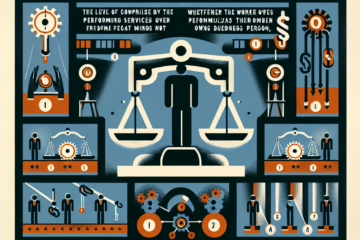Detention vs. Arrest in Canada: Insights from Samin Mortazavi
Table of contents
In criminal law, understanding the nuances between detention and arrest is crucial for anyone navigating the legal system. Though often used interchangeably in everyday conversations, these two concepts have distinct legal definitions and implications in Canada. To shed light on this topic, we delve into insights from Samin Mortazavi, a seasoned criminal lawyer. This article explores the definitions, key differences, legal perspectives, and implications of detention and arrest in Canada.
Understanding Detention and Arrest in Canada
Detention in Canada refers to holding an individual briefly, typically for questioning or investigation purposes. It does not necessarily mean the person is charged with a crime. The Canadian Charter of Rights and Freedoms provides individuals with the right to be informed promptly of the reasons for their detention and to retain and instruct counsel without delay. Detention can be a precursor to an arrest but does not always lead to one.
Arrest, on the other hand, involves taking a person into custody with the intent to charge them with a specific offence. It is a more formal process and carries significant legal implications. An arrest requires that the individual be informed of the charges against them and their rights, including the right to remain silent and the right to legal representation. Unlike detention, an arrest typically leads to a criminal charge and possibly a trial.
The Criminal Code of Canada and the Canadian Charter of Rights and Freedoms govern detention and arrest legal processes. These laws ensure that individuals’ rights are protected during both detention and arrest. Understanding these processes is essential for anyone or their loved ones involved in a criminal investigation.
In summary, while detention and arrest involve some form of custody, they are distinct concepts with different legal ramifications. Detention is generally a temporary measure for investigative purposes, whereas arrest is a formal step toward charging an individual with a crime.
Key Differences Between Detention and Arrest
One of the primary differences between detention and arrest lies in the duration and purpose of custody. Detention is generally short-term and aimed at gathering information or conducting an investigation. It does not imply that the individual will face criminal charges. Arrest is longer-term custody intending to charge the individual with a specific offence, leading to a more formal legal process.
The rights afforded to individuals during detention and arrest also differ. During detention, a person has the right to be informed of the reasons for their detention and consult a lawyer. However, they are not necessarily informed of specific charges, as they would be during an arrest. In the case of an arrest, the individual must be informed of the charges against them, their right to remain silent, and their right to legal representation.
Another key difference is the level of evidence required. For detention, law enforcement officers need reasonable grounds to suspect that the individual is connected to a crime. This is a lower threshold than arrest, where officers need reasonable and probable grounds to believe the individual has committed a specific offence. This higher standard ensures that arrests are not made arbitrarily and that a solid basis exists for charging someone with a crime.
Lastly, the outcomes of detention and arrest vary significantly. Detention may result in the individual being released without any charges, or it could lead to an arrest if sufficient evidence is gathered. An arrest, however, almost always leads to a formal charge and the initiation of the criminal justice process, which may include court appearances, bail hearings, and possibly a trial.
Legal Perspectives from Criminal Lawyer Samin Mortazavi
According to criminal lawyer Samin Mortazavi, understanding the distinction between detention and arrest is fundamental for legal practitioners and the general public. Pearce emphasizes that the rights of individuals during these processes are enshrined in the Canadian Charter of Rights and Freedoms, making it imperative for those detained or arrested to be aware of their legal protections.
Pearce notes that one of the most critical aspects of detention is the right to counsel. He explains that individuals have the right to consult with a lawyer immediately upon detention, which can significantly impact the situation’s outcome. A lawyer can provide advice on how to navigate the questioning process and ensure that the individual’s rights are not violated.
Regarding arrest, Pearce highlights the importance of the right to remain silent. He advises that individuals should exercise this right to avoid self-incrimination. Pearce also underscores the necessity of having legal representation during the arrest process and subsequent legal proceedings. A criminal lawyer can help build a defense, negotiate bail, and represent the individual in court.
Pearce’s insights reveal that while detention and arrest are serious matters, understanding one’s rights and having access to legal counsel can make a substantial difference. He advocates for public education on these issues to ensure that individuals are better prepared to handle encounters with law enforcement.
Implications of Detention vs. Arrest in Criminal Law
The implications of detention versus arrest in criminal law profoundly affect the legal strategy and potential outcomes for the individual involved. Detention, being a preliminary step, often involves a period of uncertainty where the individual may be questioned without formal charges. This phase is crucial for law enforcement to gather information but also presents an opportunity for the individual to seek legal advice and potentially avoid escalation to an arrest.
Arrest, conversely, signifies a more definitive step in the criminal justice process. Once arrested, the individual faces formal charges, and the case proceeds through the criminal justice system. This involves several legal steps, including bail hearings, preliminary inquiries, and possibly a trial. The implications of an arrest are far-reaching, affecting the individual’s personal and professional life, and can result in a criminal record if convicted.
From a legal perspective, the transition from detention to arrest requires careful navigation. Criminal lawyers, like Samin Mortazavi, play a vital role in this process, providing counsel and representation to ensure that the rights of the detained or arrested individual are upheld. They can challenge the legality of the detention or arrest, negotiate terms of release, and build a defence strategy.
The broader implications of detention and arrest also extend to public perception and trust in the legal system. Ensuring these processes are conducted fairly and transparently is essential for maintaining public confidence. Misuse or misunderstanding of detention and arrest can lead to allegations of wrongful detention, false arrest, or violations of constitutional rights, undermining the integrity of the criminal justice system.
In conclusion, understanding the distinctions between detention and arrest in Canada is crucial for anyone involved in or studying criminal law. These concepts, while related, have different legal definitions, processes, and implications. Insights from criminal lawyer Samin Mortazavi highlight the importance of knowing one’s rights and seeking legal counsel during these critical moments. Whether detained or arrested, individuals must navigate the legal landscape with awareness and support to ensure their rights are protected and to achieve the best possible outcome in their legal matters.
Frequently Asked Questions and Answers
Detention refers to the temporary holding of an individual for questioning or investigation without necessarily charging them with a crime.
Individuals detained in Canada have the right to be informed of the reasons for their detention and to consult and instruct a lawyer without delay.
An arrest involves taking a person into custody with the intent to charge them with a specific offence, unlike detention which may not lead to charges.
During an arrest, individuals must be informed of the charges against them, their right to remain silent, and their right to legal representation.
The Criminal Code of Canada and the Canadian Charter of Rights and Freedoms govern the legal processes and protections during detention and arrest.
Detention requires reasonable grounds to suspect involvement in a crime, whereas arrest requires reasonable and probable grounds to believe an individual has committed a specific offence.
Yes, detention can lead to an arrest if sufficient evidence is gathered during the investigative process.
An arrest can lead to formal criminal charges, court appearances, bail hearings, and potentially a trial, impacting the individual’s personal and professional life.
Samin Mortazavi emphasizes that immediate access to legal counsel can significantly influence the outcome and ensure the protection of the individual’s rights.
The right to remain silent helps prevent self-incrimination during the legal process following an arrest.
Detention can be a critical period where legal advice may prevent the situation from escalating to an arrest, especially if the individual is innocent.
Criminal lawyers provide defense, negotiate bail, and represent the individual in court proceedings to ensure their rights are upheld and to seek the best possible outcome.
Fair and transparent handling of detention and arrest is essential for maintaining public confidence in the legal system; misuse or misunderstanding can lead to mistrust.
Awareness of these distinctions helps individuals know their rights and how to react if they find themselves in such situations, potentially mitigating legal risks.
The Charter ensures that individuals are aware of their rights during detention and arrest, providing protections like the right to counsel and the right to be informed of charges.
Detention is generally short-term for investigative purposes, whereas arrest can lead to longer-term custody if the individual is formally charged.
Yes, it is possible for a person to be released without any charges after a period of detention if insufficient evidence is found.
It is advisable to remain calm, understand the reason for detention or arrest, exercise the right to remain silent, and seek immediate legal assistance.
Having legal advice during detention can guide the individual on how to handle questioning and protect their rights, which might prevent an escalation to arrest.
Understanding these implications helps individuals navigate the criminal justice system more effectively and safeguard their legal rights throughout the process.
Discover more from Pax Law Corporation
Subscribe to get the latest posts sent to your email.



0 Comments